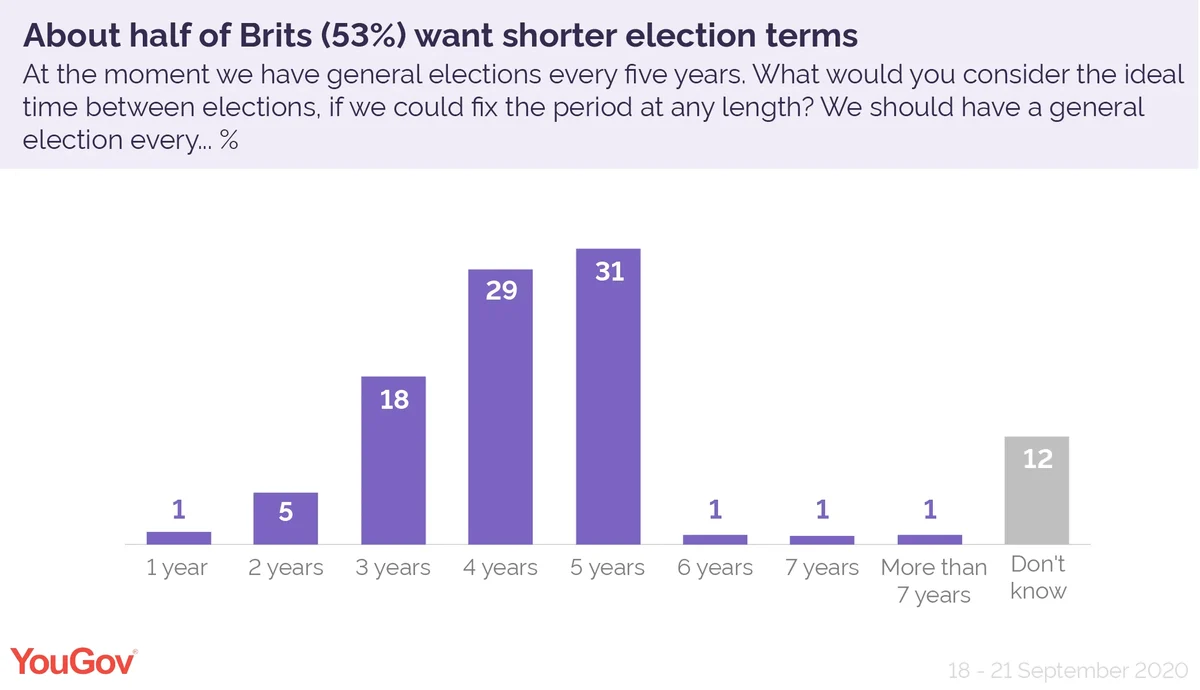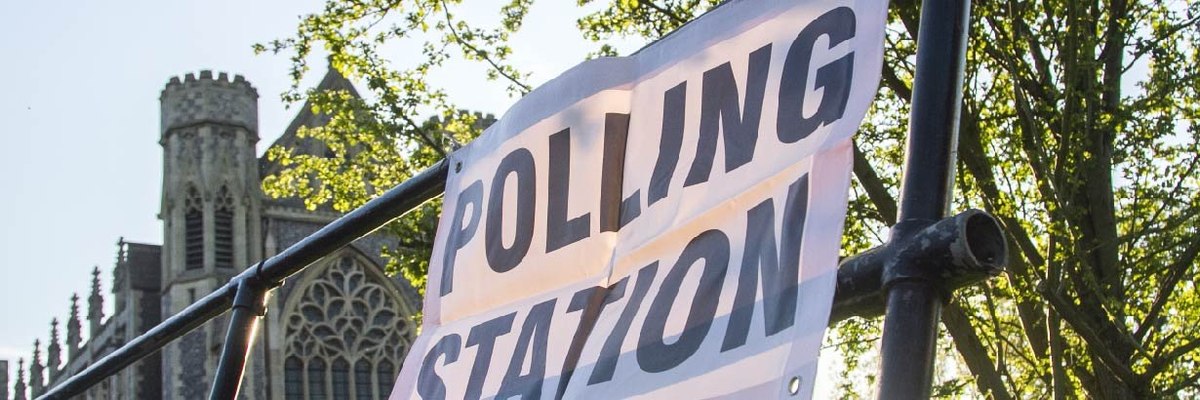
Democracy and the election process: what Britons think about UK elections
The YouGov Democracy Study finds that there are big generational divides regarding the question of who should have the right to vote in general elections. Data reveals considerable support for making voting compulsory, but not for having to pass a knowledge test before becoming eligible. The public is also split on whether our voting system is fair or not
Who should and who should not have the right to vote?
In terms of voter turnout, the UK ranks high among developed countries. In the 2019 general election around 32 million people voted. Elections represent one of the most important mechanisms for people to influence decision-making in their country. However, the question about which groups should and should not have the right to vote in general elections has been raised several times in recent years.
One of the questions is whether convicted criminals should or should not have the right. Current legislation bans convicted prisoners from voting in UK elections, despite several European Court of Human Rights rulings to the contrary. The results of the YouGov Democracy Study show that nearly two-thirds of the British public (63%) are against giving prisoners the right to vote. This opinion is stronger when it comes to people convicted of electoral fraud – eight in ten (81%) are against giving them voting rights.
In the runup to the 2016 referendum on EU membership there was a debate on whether or not EU nationals residing in the UK should be allowed to vote. The results of our study show that a third (36%) of the British public would give voting rights to non-British citizens residing in the UK, but over half (52%) are against this.
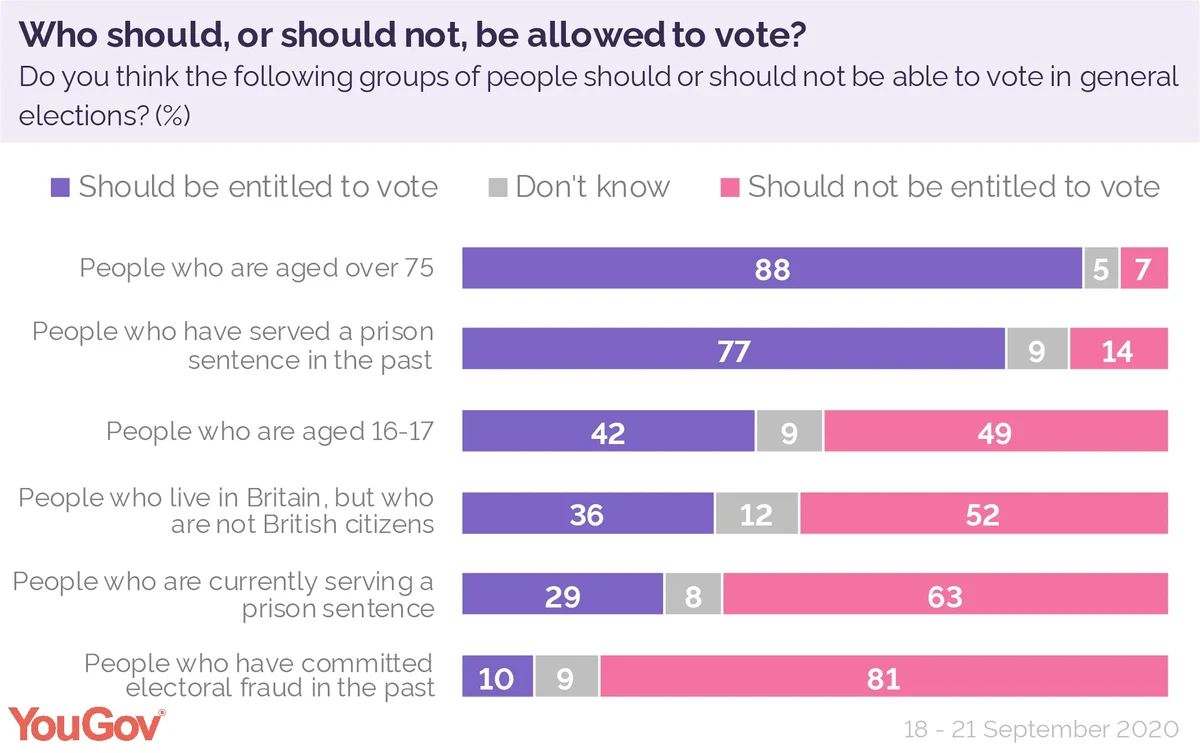
The 2014 Scottish referendum for independence, where 16-year-olds were allowed to vote, invigorated the debate over whether the voting age limit should be lowered to 16 across the board. Results from the YouGov Democracy study show that the public is split: half (49%) do not support giving voting rights to 16-year-olds, but four in ten (42%) do.
The breakdown of the results shows that two-thirds (67%) of those aged from 16 to 24 and just over half of those aged from 25 to 39 (52%) support this. Among those in their 40s and 50s, support is lower at 42%, while just a quarter (24%) of those aged 50 and over support the idea.
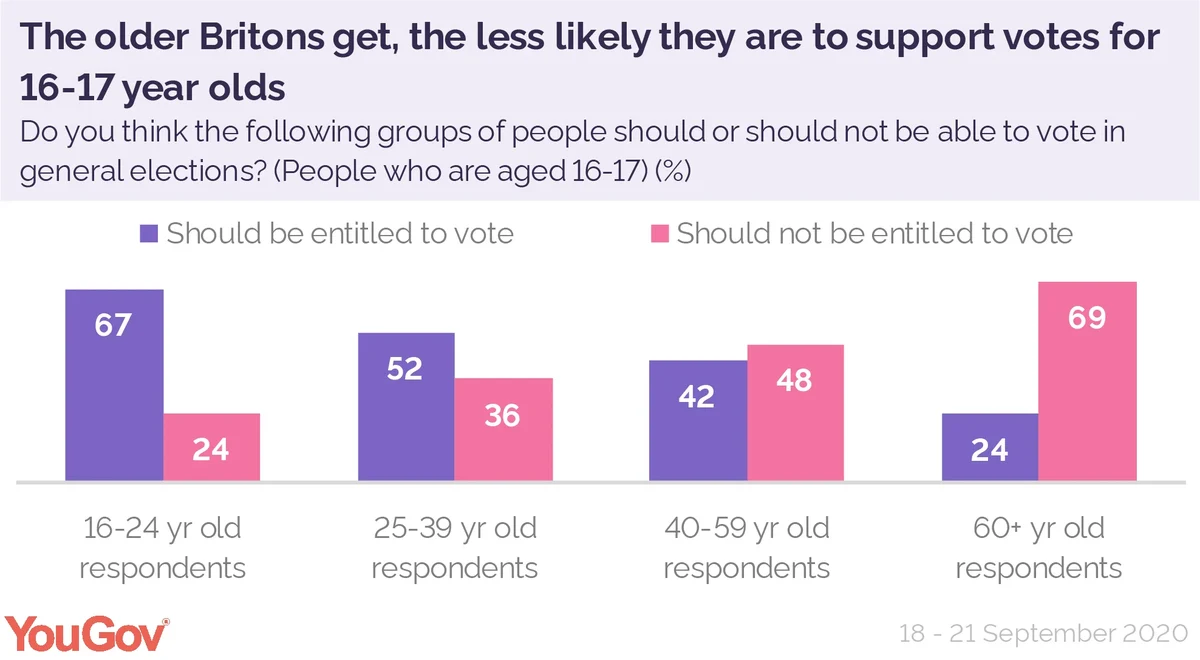
The fallout of the 2016 EU referendum also sparked a public discussion on whether there should be an upper cap in the voting age. Just one in 14 (7%) in the UK think that those aged 75 or older should have voting rights removed. This view is shared by one in five (19%) of 16 to 24-year-olds and one in nine (11%) of those aged from 25 to 39.
Should voting in general elections be compulsory, and should voters have to pass a knowledge test?
We also asked whether voting in general elections should be compulsory. The opinion is split, with nearly half (47%) of the public against, and four in ten (41%) in favour. The greatest support for making voting in general elections mandatory is among those aged 60 and older, where nearly half (47%) are in favour. Among 16 to 24-year-olds, who are seen to be the least politically engaged group, four in ten (39%) supported making voting compulsory.
When asked if citizens should have to pass a knowledge test before voting, just over a quarter (28%) of the British public supported the idea, with well over half of the population (56%) being against. About a third of those under 60 support having a knowledge test, while the greatest number of those opposed (67%) are over 60. A third of Lib Dem voters (35%), three in ten (31%) Labour voters and a quarter (26%) of those who voted Conservative in 2019 favour the idea of a knowledge test before being allowed to vote.
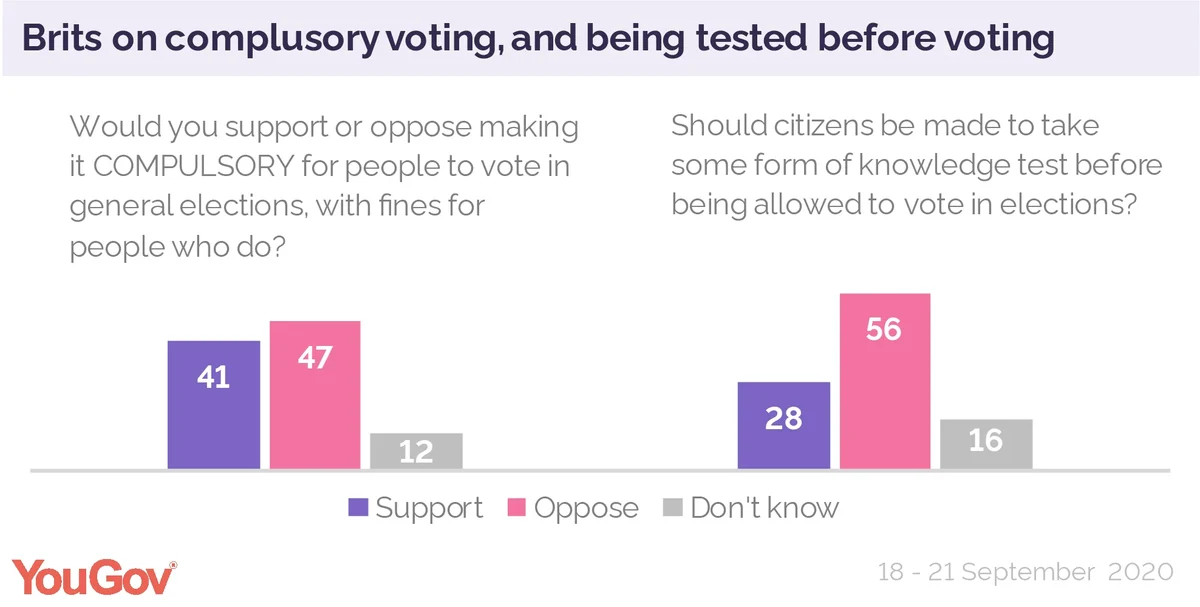
How much does it matter who wins the elections?
In recent times it has become common to hear that “it doesn’t really matter who wins the elections, they are all the same”. Our research shows that a fifth of the population (21%) share this view.
In contrast, three in ten (31%) think it does make a large difference, and a further four in ten (39%) say it makes a significant difference.
The view about there being little or no difference in who wins the elections is most widely shared among those in their 40s and 50s (26%). Among those aged from 16 to 24 just one in eight (13%) share the view.
When results are broken down by the 2019 general election voting, a fifth (19%) of those who opted for the Conservatives and one in eight (12%) Labour supporters think it makes little or no difference at all in who forms the Government. This view applies to a fifth (20%) of Lib Dem voters.
What do Britons think about the fairness of the election system?
Despite the 2011 Alternative Vote referendum where the UK public decided to keep the first-past-the-post system (67.9% for, and 32.1% against), data from one of YouGov’s political trackers shows there is currently greater support in the public for proportional representation (42%) than for the current electoral mechanism (33%).
The YouGov Democracy Study reveals a deep public split on the perception of the UK election system: four in ten (40%) Britons think the system is unfair, and slightly fewer (38%) think it fair.
When the results are split across age groups, there is a clear generational divide on the issue: over half of those aged 16 to 24 (55%) and just under half of those aged 25 to 39 (46%) say the system is unfair; those in their 40s and 50s are split (39% think it’s fair and 38% think it’s not), whilst the majority of those 60 and older (52%) say the system is fair to all parties.
Among Labour and Lib Dem voters, six in ten (58% and 60% respectively) think the system is not fair to all parties, and this view is shared by a quarter (24%) of Conservative voters.
Our study shows that one in four Britons (25%) think the election results don’t accurately reflect how the public have voted (but 53% say they do).
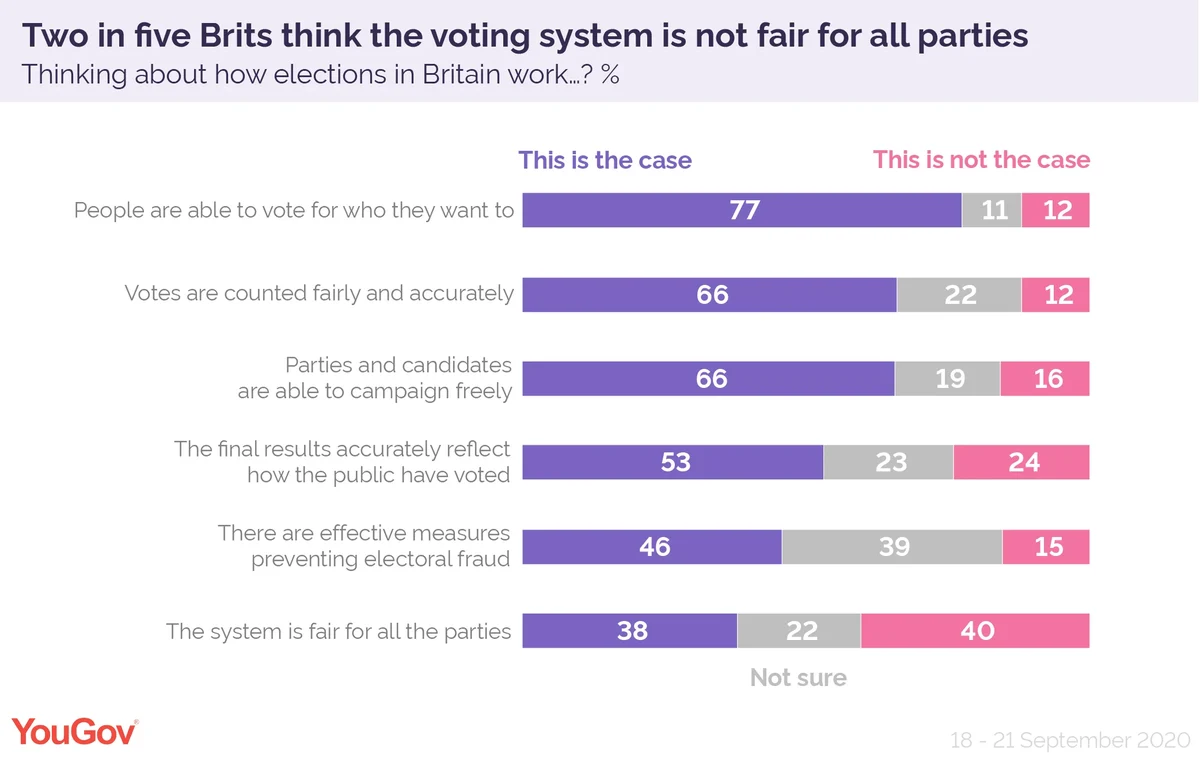
On the other hand, there is overwhelming confidence in the freedom of elections in the UK (77%), the fair and accurate counting of ballots (66%) and the ability of political activists to campaign freely (66%).
How often should there be a general election?
Currently, general elections in the UK are held every five years. The YouGov Democracy study shows that the majority of the public would prefer general elections to be held at intervals of between three to five years: 31% want one every five years, 29% want one every four years and 18% want one every three years.
